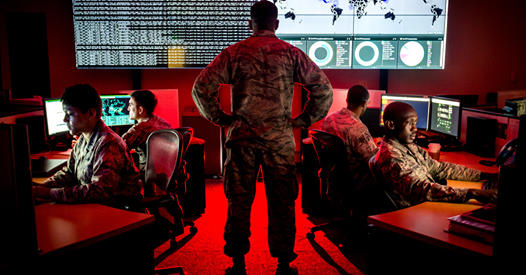

Anyone that’s used a military job translator online knows that, for the most part, it’s going to generate job offers that directly translate your Military Occupational Specialty (MOS). If you were a cook, it’s going to find cooking jobs; if you were infantry, good luck finding anything other than a police officer or security guard. For those transitioning out, it can be difficult to think about your future career outside of those translators.
When new recruits step on the yellow footprints at basic training, they are entirely unprepared for the job they have accepted. There is no college degree or training program outside of the military that will take the place of MOS school. An 18-year-old who never took a language class can become a cryptologic language analyst in 64 weeks. This is accomplished because every service member, regardless of their job, is placed in a learning environment that carries a high standard, is supportive, and holds each student accountable. Finding that in the civilian world is like finding a lost pair of NOGS: near impossible.
The problem is too many veterans think of themselves the same way that an online job translator does. The day that someone signs up for military service, they’re mostly bound to that MOS for the entirety of their career. Ask most vets to describe their military service, and nine times out of ten it’s going to be their military branch followed by MOS.
So it makes sense, then, that those transitioning out would want to find a place in the civilian world to do just that. To find an identity, to be a part of something bigger than themselves, and to feel that same sense of military camaraderie. As veterans enter the job market, the biggest problem isn’t the job itself, it’s that the environment lacks the same camaraderie and culture as service members are used to.
There is hope, though. Many industries are beginning to see the value in veterans beyond their designated MOS. They understand the vast learning capabilities and develop apprenticeship programs that service members can thrive in, both intellectually and culturally. A great example of that is The Purdue Cyber Apprenticeship Program. Open to veterans from any MOS, the program is funded by a grant from the U.S. Department of Labor and allows military students to complete courses at no cost to them and without having to use any of the VA education benefits.
Similar to military training, students will have the opportunity to learn a new skill set, while working and learning alongside other motivated candidates within the program. As part of the curriculum, the Purdue Cyber Apprenticeship Program immerses students in real-world apprenticeship jobs. Students accepted into the program are sponsored AND paid by a company throughout the duration of the program. Each graduate leaves with industry-recognized certificates and an Associate’s degree in IT or a Bachelor’s in computer and information science majoring in cybersecurity. There is also an option to earn a Master’s in cybersecurity and trusted systems.
So, if you’re a veteran looking for a place to earn your stripes, where you’re not limited by an MOS code, and where you can learn an exciting new skill set while growing in a military-friendly community, check out the Purdue Cyber Apprenticeship Program.
This article is sponsored by the Purdue Cyber Apprenticeship Program.